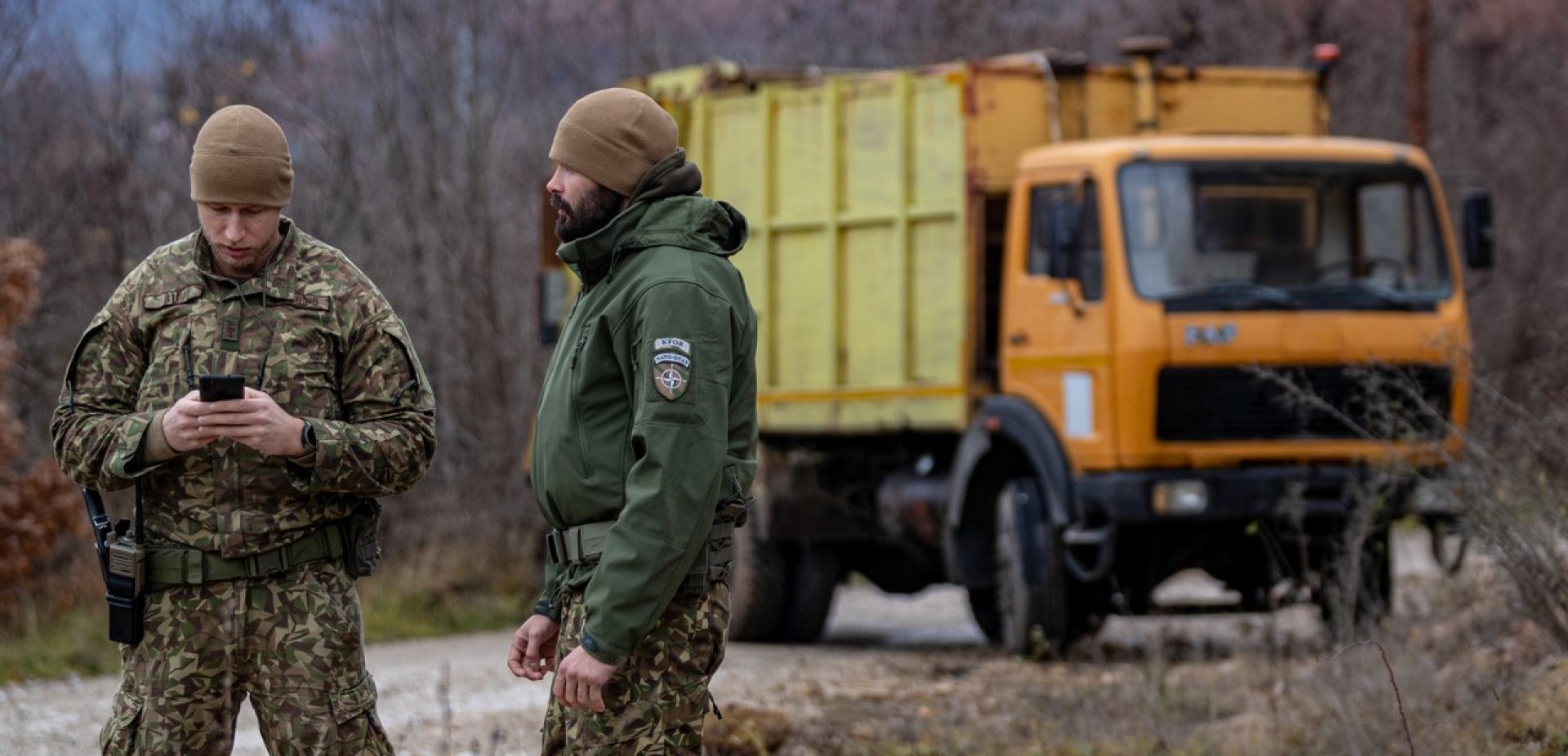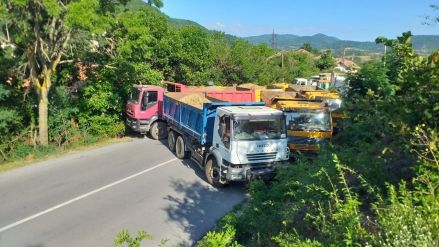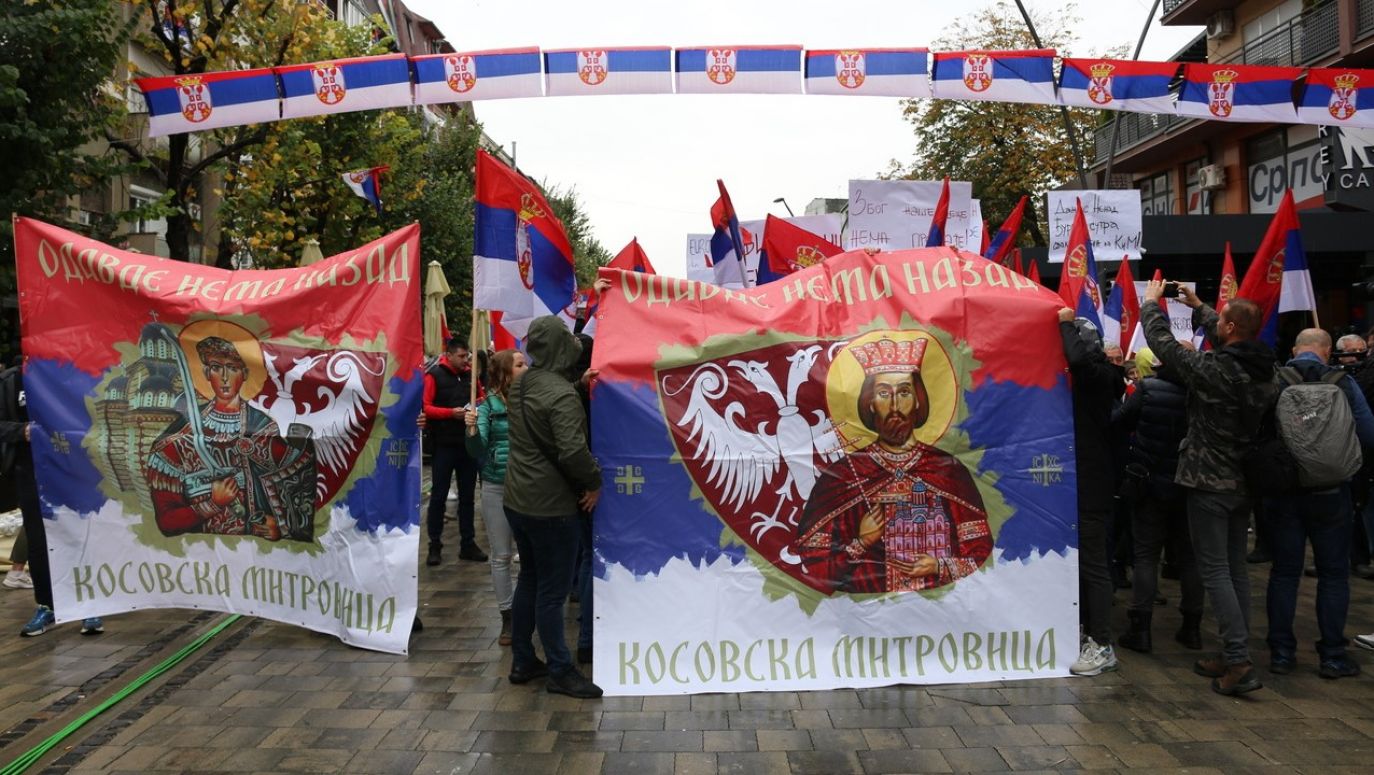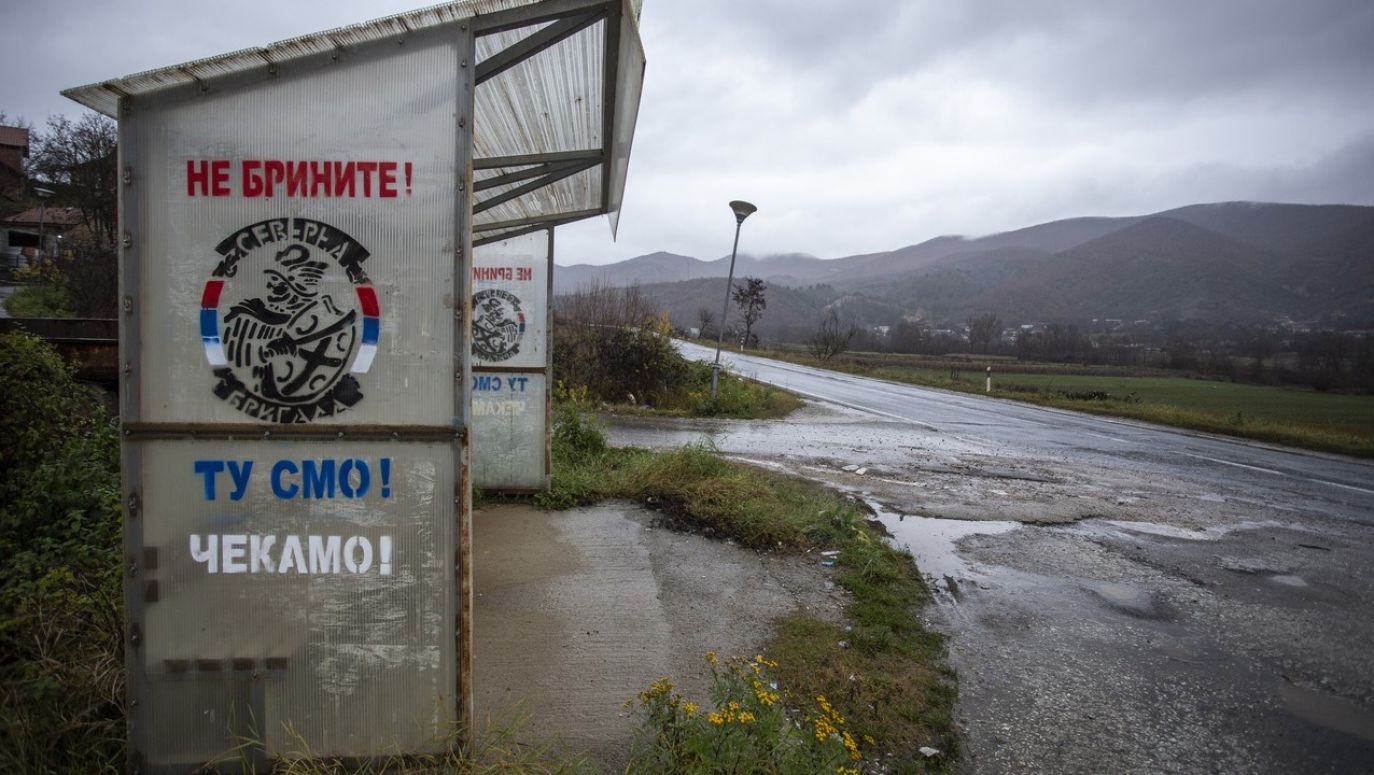As they were demonstrating, they began to jostle. A scuffle began and a plexiglass ballot box was broken. And among those jostling, was Dejan Pantić, a Kosovo-Serbian policeman who had earlier resigned (evil tongues had claimed that despite his police tenure, he was paid by Belgrade).
On Friday, December 10, Kosovan police arrested Pantić on charges of terrorism and violation of the constitutional order. Now nobody knows where he is. But he has stents. So both the US special envoy and the President of Serbia are now trying to make sure he will receive medications for high blood pressure and immune response.
Meanwhile, Kosovo's President Vjosa Osmani announced she was postponing the scheduled local elections until April when it’s warmer. Next, Serbia’s President Vučić placed the police and army on high alert. Then Osmani also put the police and army on high alert. And KFOR forces (the NATO-led international peacekeeping force in Kosovo) have also been put on high alert. Each side accuse the other of terrorism and hostage-taking, as they call for moderation and avoiding provocations. Both just want the rule of law. Traffic between the four municipalities in the north and the rest of Kosovo is on hold. At the Jarinje Pass it is minus eight degrees.
And all of this could have been dismissed as yet another local Balkan whirlpool (what a lovely whirlpool that for a quarter of a century has been fueling a sense of impermanence, unlike any known by the inhabitants of the Western Territories), were it not for another – not insignificant - element.
Wagner's Eagles
Russia. Russia, which supports Serbia so fervently that a week ago, on December 8, the Wagner Group announced the opening of a "new cultural, information and training center, called ‘Eagles’", in Belgrade. According to the statement of the Wagner Group, the "Eagles" are tasked with strengthening ties of friendship, cooperation in the field of defense and prosecuting "Russian liberals conducting anti-state activities in Serbia." Serbian national groups are already expressing hope that if anybody could restore order in Kosovo and come to the aid of the oppressed Slavs, it would be the Wagner Group.
Of course, the probability of starting a fight (likely partisan and
of low intensity) between Serbian forces supported by the Wagner Group and Kosovan forces supported by NATO is low. If this scenario looks as if it was written by a Polish geopolitics expert, running his own YouTube channel, seemingly convinced that the world is built like Lego bricks: the pivot is here, a landing party there, and over there lies the Transnistria-Hungary-Serbia solidarity axis, via which Russian tanks can go as far as Camp Bondsteel HQ [the KFOR operation headquarters in eastern Kosovo], Tirana and the Adriatic…
Of course, this is a nonsense. However, apart from the YouTube geopolitics experts, there is another group of people who need to pay attention, That group is made up of the quartermasters and logistics personnel whose job it is to anticipate and be prepared for the most unlikely contingencies, ready to meet the occasion with guaranteed supplies, food and ammunition stocks plus the necessary logistics and reserves. So now, these, rather than to Jasionka [Poland’s airport and a gateway for arms support from the West into Ukraine] and points further East, will fly to Camp Bondsteel.
And that's why it's so important for Dejan Pantić to get his anti-artherosclerosis drugs. Judging from his photos, however, he should probably blame himself for his health: he looks like he would trade half of Kosovo for a good roast pig.
–Wojciech Stanisławski
TVP WEEKLY. Editorial team and journalists
–translated by Agnieszka Rakoczy

 SIGN UP TO OUR PAGE
SIGN UP TO OUR PAGE 






